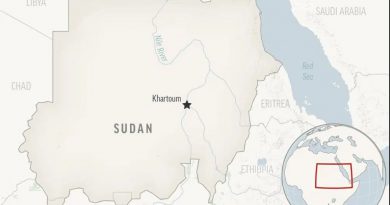US will offer Cyber Warfare tactics to its NATO allies
A United States official says the U.S. military is offering its cyber warfare technology, including computer software tools, to the North Atlantic Treaty Organization (NATO).
The move is meant to help the 69-year-old alliance better deal with cyber threats from Russia and China.
The Associated Press says an announcement is expected soon.
Katie Wheelbarger is a deputy assistant defense secretary for the United States Department of Defense. She said the U.S. is prepared to use defensive and offensive cyber operations for NATO allies. One condition, however, is that the U.S. will keep control of its own personnel and operations.
NATO members accept cyber operations
The U.S. offer comes just three months after leaders of NATO member countries gathered in Belgium. They agreed to let the alliance use cyber technology that is provided voluntarily by NATO members. Their goal is to protect computer networksand fight off cyberattacks.
The agreement shows that the United States and its allies are increasingly concerned about Russia’s use of cyber operations to influence elections worldwide.
On Thursday, the Netherlands reported that Russia’s military intelligence service, the GRU, attempted a cyberattack on a group investigating chemical weapons use. Hours earlier, Britain accused the GRU of carrying out a worldwide campaign of cyberattacks.
“Russia is constantly pushing its cyber and information operations,” said Wheelbarger. She added that the cyber effort is a good way for the U.S. to show its continued support for the alliance.
NATO Secretary-General Jens Stoltenberg said offensive cyber operations are “just one of many elements in our strengthened NATO cyber defenses.” He told reporters it is important to have the ability to destroy networks used by groups like the Islamic State for financing and expanding membership.
Stoltenberg said that Britain and Denmark also have agreed to help NATO with cyber warfare activities, and he expects other countries to follow. He noted the use of computers to influence political processes as well as cyberattacks against infrastructure. He said that cyber warfare will be an important part of “any future military conflict.”
A new cybersecurity strategy
Observers say the new declaration of cyber support can help serve as a warning to keep other nations and enemies from attacking. In September, the U.S. Defense Department released a cybersecurity strategy. That document calls for more aggressive use of cyber activities by the military. And it criticizes Russia and China for their use of cyberattacks.
China, the document said, has “persistently” taken information from government and private businesses for economic reasons. It said Russia has used cyber information operations to “influence our population and challenge our diplomatic processes.”
U.S. officials have repeatedly accused Russia of interfering in U.S. elections in 2016 by using, among other things, social media.
For these and other reasons, the new cybersecurity strategy calls on defense officials to “work to strengthen the capacity” of allies and partners.
NATO has slowly moved to expand on offensive cyber activities.
At a NATO meeting in Warsaw in 2016, the alliance recognized cyberspace as an area of warfare. It went on to say that a computer-based attack on any ally would activate NATO’s promise to defend its members.
In 2017, NATO officials agreed to create a cyber operations center. So far, the alliance has been taking steps to defend NATO networks and those of its members, and not on offensive computer technology.
[First published on Washington Post]



